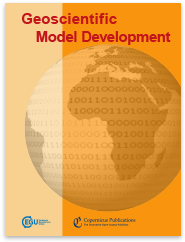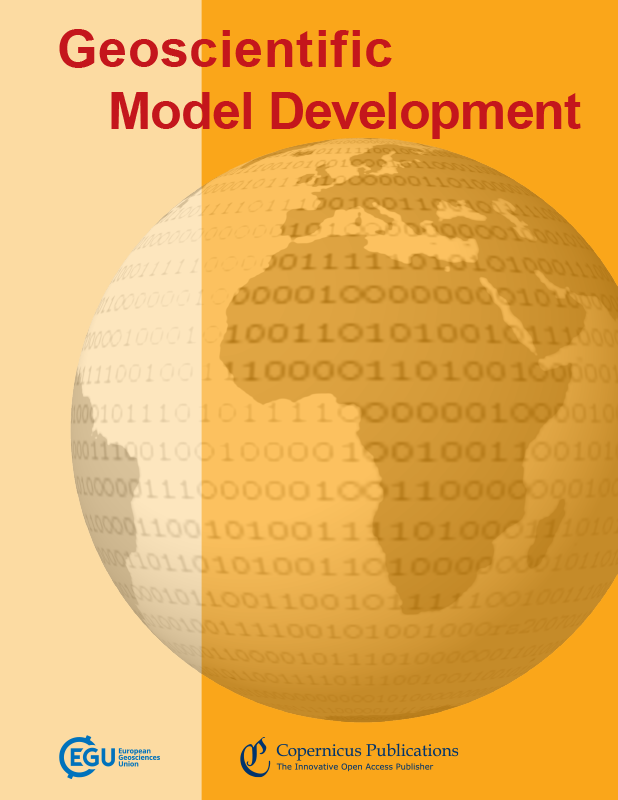
Geoscientific Model Development (GMD) is a not-for-profit international scientific journal dedicated to the publication and public discussion of the description, development, and evaluation of numerical models of the Earth system and its components. The following manuscript types can be considered for peer-reviewed publication:
- geoscientific model descriptions, from statistical models to box models to GCMs;
- development and technical papers, describing developments such as new parameterizations or technical aspects of running models such as the reproducibility of results;
- new methods for assessment of models, including work on developing new metrics for assessing model performance and novel ways of comparing model results with observational data;
- papers describing new standard experiments for assessing model performance or novel ways of comparing model results with observational data;
- model experiment descriptions, including experimental details and project protocols;
- full evaluations of previously published models.
More details can be found in manuscript types and the journal editorial (compiled by the executive editors).
Journal metrics
GMD is indexed in the Web of Science, Scopus, Google Scholar, etc. We refrain from displaying the journal metrics prominently on the landing page since citation metrics used in isolation do not describe importance, impact, or quality of a journal. However, these metrics can be found on the journal metrics page.
Highlight articles
Recent papers
News
Notice on the current situation in Ukraine
To show our support for Ukraine, all fees for papers from authors (first or corresponding authors) affiliated to Ukrainian institutions are automatically waived, regardless if these papers are co-authored by scientists affiliated to Russian and/or Belarusian institutions. The only exception will be if the corresponding author or first contact (contractual partner of Copernicus) are from a Russian and/or Belarusian institution, in that case the APCs are not waived.
In accordance with current European restrictions, Copernicus Publications does not step into business relations with and issue APC-invoices (articles processing charges) to Russian and Belarusian institutions. The peer-review process and scientific exchange of our journals including preprint posting is not affected. However, these restrictions require that the first contact (contractual partner of Copernicus) has an affiliation and invoice address outside Russia or Belarus.


